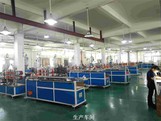Can Modified ABS be used in agricultural equipment?
In the realm of modern agriculture, the choice of materials for equipment is crucial to ensure efficiency, durability, and cost - effectiveness. As a supplier of Modified ABS, I've been often asked whether our product can be a viable option for agricultural equipment. In this blog, we'll explore the properties of Modified ABS and its potential applications in the agricultural sector.
Understanding Modified ABS
Modified ABS, or Acrylonitrile - Butadiene - Styrene, is a thermoplastic polymer that has been enhanced with various additives to improve its performance characteristics. These modifications can include improving its mechanical strength, heat resistance, chemical resistance, and flame retardancy.
We offer different grades of Modified ABS to meet diverse industrial needs. For instance, Electroplating Grade ABS is designed to have excellent adhesion for electroplating processes, which can provide a decorative and protective surface finish. Heat Resistance Grade ABS can withstand higher temperatures without significant deformation, and Flame Retardant ABS is formulated to reduce the risk of fire.
Key Properties of Modified ABS Relevant to Agriculture
Mechanical Strength
Agricultural equipment often endures harsh conditions, including impacts from stones, vibrations during operation, and heavy loads. Modified ABS can be engineered to have high impact resistance, which means it can withstand sudden shocks without cracking or breaking. For example, in the construction of small - scale agricultural machinery housings, a high - impact Modified ABS can protect the internal components from damage caused by external impacts.
Chemical Resistance
In agriculture, equipment may come into contact with various chemicals such as fertilizers, pesticides, and herbicides. Modified ABS can be formulated to resist the corrosive effects of these chemicals. This is particularly important for components like sprayer tanks or chemical storage containers. A well - designed Modified ABS can maintain its integrity even when exposed to a wide range of agricultural chemicals, ensuring a longer service life for the equipment.
Weather Resistance
Agricultural equipment is exposed to all kinds of weather conditions, including sunlight, rain, and extreme temperatures. Modified ABS can be treated to have good weather resistance. UV stabilizers can be added to prevent the polymer from degrading under prolonged sunlight exposure, and additives can be used to improve its performance in cold or hot climates. This allows the equipment to maintain its appearance and functionality over time, even when used outdoors for extended periods.
Lightweight
Compared to traditional materials like metal, Modified ABS is lightweight. This is an advantage in agricultural equipment as it can reduce the overall weight of the machinery, leading to lower fuel consumption and easier handling. For example, in the design of portable irrigation systems or small - scale tillers, using Modified ABS components can make the equipment more maneuverable for farmers.
Potential Applications of Modified ABS in Agricultural Equipment
Housings and Enclosures
Many agricultural machines, such as tractors, combines, and small - scale power tools, require protective housings and enclosures for their internal components. Modified ABS can be used to manufacture these parts due to its mechanical strength and ability to be molded into complex shapes. The heat - resistant grade of Modified ABS can be particularly useful for enclosing components that generate heat during operation, such as engines or electrical systems.
Handheld Tools
Farmers often use handheld tools like pruning shears, seeders, and small sprayers. Modified ABS can be an ideal material for the handles and bodies of these tools. Its lightweight nature makes it easy to hold and operate for long periods, and its impact resistance ensures that the tools can withstand the rigors of daily use. Additionally, the electroplating grade can be used to provide a smooth and attractive finish to the tools.
Storage Containers
As mentioned earlier, Modified ABS's chemical resistance makes it suitable for manufacturing storage containers for agricultural chemicals, seeds, and fertilizers. These containers can be designed to be stackable and durable, providing a safe and efficient way to store and transport these materials on the farm.
Conveyor Systems
In large - scale agricultural processing facilities, conveyor systems are used to move crops, grains, and other agricultural products. Modified ABS can be used for the construction of conveyor belts or the components of the conveyor system. Its low friction coefficient can help reduce energy consumption during operation, and its mechanical strength can ensure that it can handle the weight of the materials being transported.
Challenges and Considerations
While Modified ABS has many advantages for agricultural equipment, there are also some challenges and considerations.
Cost
The cost of Modified ABS can be higher than some traditional materials. However, when considering the long - term benefits such as durability and reduced maintenance costs, the overall cost - effectiveness may be comparable or even better. As a supplier, we are constantly working on optimizing our production processes to offer more competitive pricing.
Recycling
In today's environmentally conscious world, recycling is an important consideration. Modified ABS can be recycled, but the process may be more complex due to the presence of additives. However, with the development of advanced recycling technologies, this is becoming less of a problem. We are also committed to promoting sustainable practices and working with recycling partners to ensure that our products have a minimal environmental impact.
Compatibility with Other Materials
In some cases, agricultural equipment may be made up of multiple materials. Ensuring the compatibility of Modified ABS with other materials, such as metals or rubber, is crucial. This requires careful design and testing to prevent issues such as delamination or chemical reactions between different materials.


Conclusion
In conclusion, Modified ABS has great potential for use in agricultural equipment. Its unique combination of mechanical strength, chemical resistance, weather resistance, and lightweight properties make it a suitable choice for a wide range of applications in the agricultural sector. While there are some challenges to overcome, the benefits far outweigh the drawbacks.
If you are in the agricultural equipment manufacturing industry and are interested in exploring the use of Modified ABS for your products, we would be more than happy to discuss your specific requirements. Our team of experts can provide you with detailed technical information and samples for testing. Contact us to start a procurement discussion and discover how Modified ABS can enhance the performance and durability of your agricultural equipment.
References
- "Plastics in Agriculture: A Review of Applications and Environmental Impacts" by X. Zhang et al.
- "Engineering Plastics: Properties and Applications" by J. A. Brydson
- "Thermoplastics: Materials Engineering" by C. A. Harper




